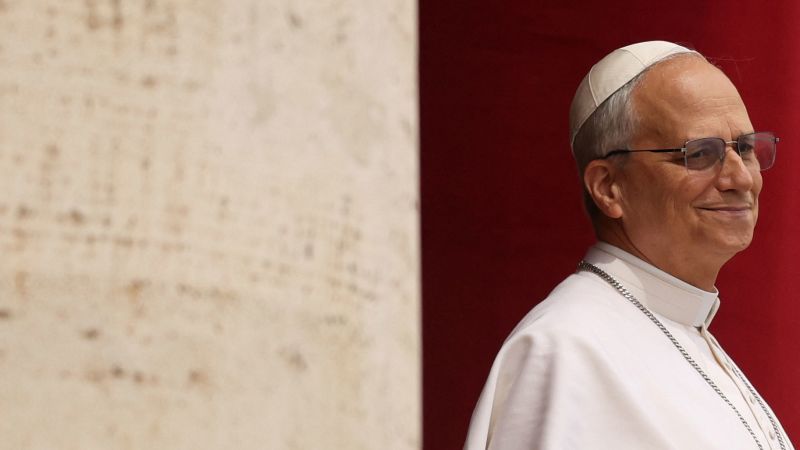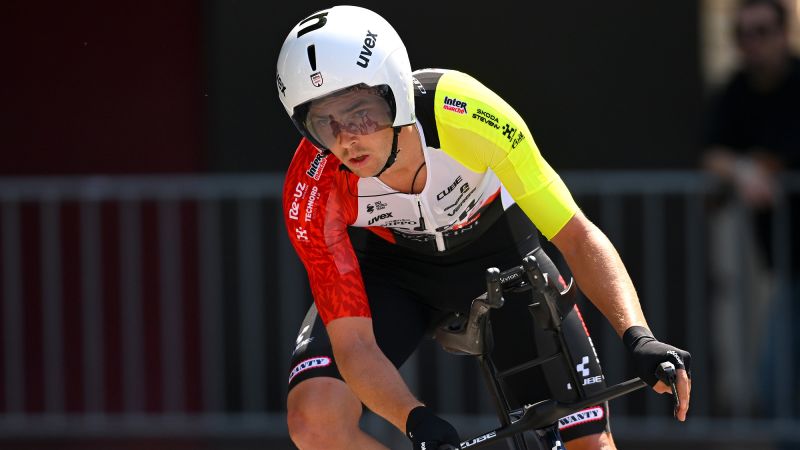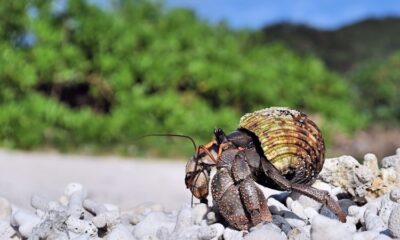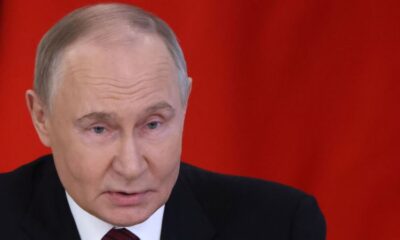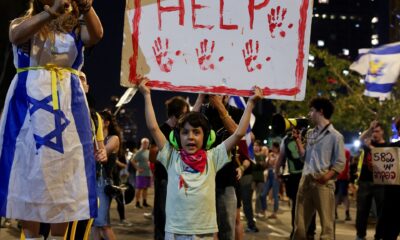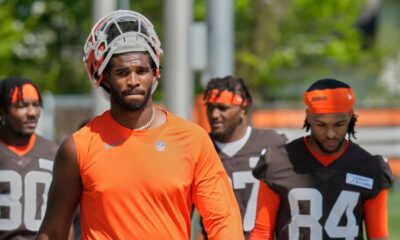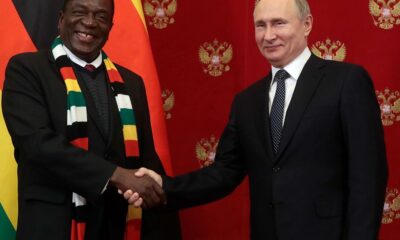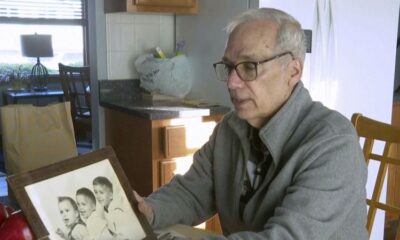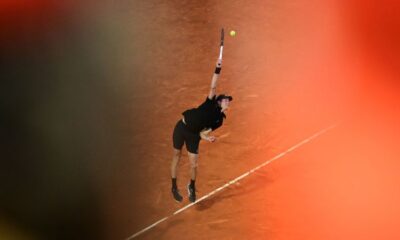Rome
CNN
—
I met the man who would become Pope Leo XIV in October 2023. We were standing outside the Vatican’s Synod Hall, and from my short conversation with Cardinal Robert Prevost, I could tell he was a good listener, thoughtful and had a certain presence about him.
Our conversation took place on the sidelines of a major Vatican assembly focused on church reform efforts. It was part of a multi-year process begun by the late Pope Francis – the synod – which he extended from his hospital bed as one of his final acts in power.
Inside the large gathering hall in 2023, and again in 2024, participants like Prevost sat at roundtables where everyone was given a chance to speak for the same allotted length. The future pope, like other cardinals and bishops, engaged with people from across the world, notably including women. Synod gatherings in the Vatican had not taken place in that style before and, for the first time, included female voters who had their say on agreeing a final document.
Just half a year later, Prevost – now Pope Leo XIV – is no longer one of the many participants at the table. He is at the helm of the church and set to continue steering this reform process in the same direction.
“He is a person of great gentility, a great listener,” Fr. Tony Banks, a friend of the new pope and the Assistant General of the religious Order of St. Augustine, told CNN. He said that Leo will seek to put Francis’ reforms “into a very concrete form, in terms of theology and practice.”
When Pope Leo spoke on the balcony of St. Peter’s Basilica just moments after his election, he signaled he would seek “to walk together with you as a united church searching all together for peace and justice, working together as women and men.”
Leo is likely to continue what Francis started but with his own low-key yet determined style. His election, at the age of 69, shows the cardinals want a pope to institutionalize those reforms in a papacy that could last several decades.
Central among them are questions about the role of women, the exercise of power in the church hierarchy and the move to a more missionary church that gets out of its comfort zone.
Before the white smoke went up, the best-known American in the world was President Donald Trump. Pope Leo XIV, the first American pope, has changed that.
By electing Prevost, the cardinals have ensured the papacy is a prophetic voice on the world stage that could serve as a counterweight to Trumpism.
While Pope Leo is a unifier who does not appear looking to pick fights, his focus on bridge-building, dialogue and support for migrants, stands in contrast to the Trump administration.
In his first speech to the cardinals following his election, Pope Leo pledged his “complete commitment” to the teachings of the Second Vatican Council, the 1962 to 1965 gathering of bishops that provided the blueprint fort contemporary the contemporary church.

He insisted that this meant “loving care for the least and the rejected” and “courageous and trusting dialogue” with the contemporary world with the contemporary world in its various components and realities” including, tackling the challenge to human dignity that Artificial Intelligence presents.
The Second Vatican Council sought to emphasize the church as a voice for the marginalized – a “prophetic voice” – and was particularly embraced in Central and Latin America, where the future Pope Leo served for decades.
Banks said the new pontiff is “very concerned with social issues and the marginalized,” someone who is close to those on the “peripheries.” The Augustinian order – which pope Leo was elected to lead for two terms – is focused on community building.
Posts made on an X account under the new pope’s name reposted articles and posts critical of the Trump administration’s immigration policy, although those who know Pope Leo say he is not naturally confrontational.
“I don’t think he’s one to pick fights with people, but he’s not one to back down if the cause is just,” according to Cardinal Joseph Tobin of Newark, New Jersey, who has known Pope Leo for some time as his friend “Bob” Prevost.
When it comes to the hotly disputed topics inside the church – same-sex blessings, the ordination of women – the new pope is going to adopt a posture, rather than make bold changes.
In 2012, Prevost gave a speech criticizing the “sympathy for anti-Christian lifestyle choices” found in the mass media including same-sex couples and “their adopted children,” although 11 years later he said his position had developed “in the sense of the need for the church to open and to be welcoming.”
Sister Nathalie Becquart, who works in the Vatican in the synod office, has been the pope’s neighbor during his recent years working in the office for bishop appointments. She told CNN that he is “easy to have a conversation with” and is a “very simply, humble person.”
When he was Bishop of Chiclayo, Peru, Becquart says he ensured women were in leadership positions in his diocese.
Like Francis, he is unlikely to try and change church doctrine but will take a firm stance on topics such as migration, peace, the environment.
“He’s not a man who’s going to tell you what he’s against, he’s going to tell you what he’s for, that’s to me the crucial thing about him,” said Brother Mark O’Connor, a Catholic journalist who runs communications for the Diocese of Parramatta in Australia. O’Connor knows Pope Leo reasonably well.
“He’s the opposite of a culture warrior,” he said. “I don’t think he believes fighting about doctrine or even changing doctrine and talking about dogmatic issues is the way forward.”
As the church moves into a new era, one topic he must address is clerical sexual abuse.

Given his time as a former leader of a religious order and prefect of the Vatican office for bishops he will have had experience dealing with abuse cases. One survivor group has criticized his handling of some cases, while the leader of Peru’s bishops’ conference praised Prevost’s ministry to abuse survivors.
Leo has a doctorate in the church’s canon law, which equips him for the task of ensuring existing church laws are applied to investigate cases and hold leaders accountable.
The new pope is also credited with playing a crucial role in the suppression of the Sodalitium Christianae Vitae, a powerful Peruvian group plagued by allegations of abuse.
Traditional wisdom said it was not possible to have a pope from the United States.
Yet in Pope Leo XIV, church leaders chose someone who has spent decades working in Latin America and has global experience – often referred to as a citizen of the world.
At a time of increasing divisions, wars and conflicts, the 2025 conclave has opened an extraordinary new page for the church with the choice of Leo, a bridge-builder and quietly prophetic pope.

